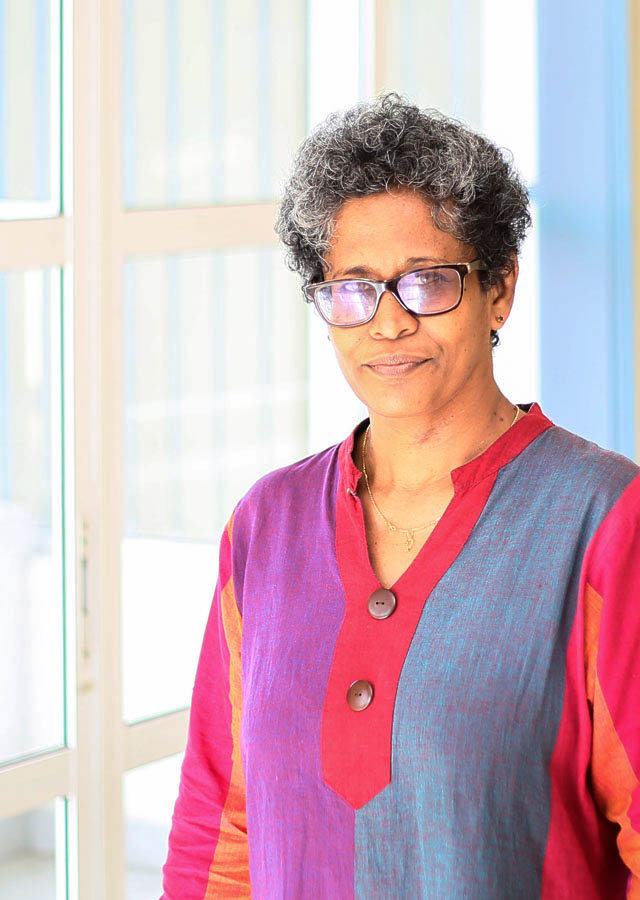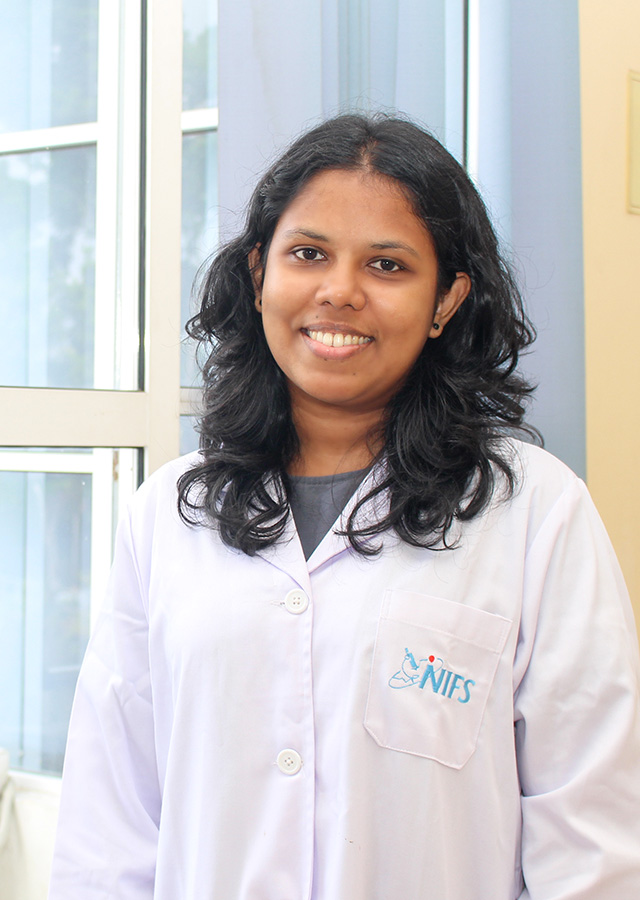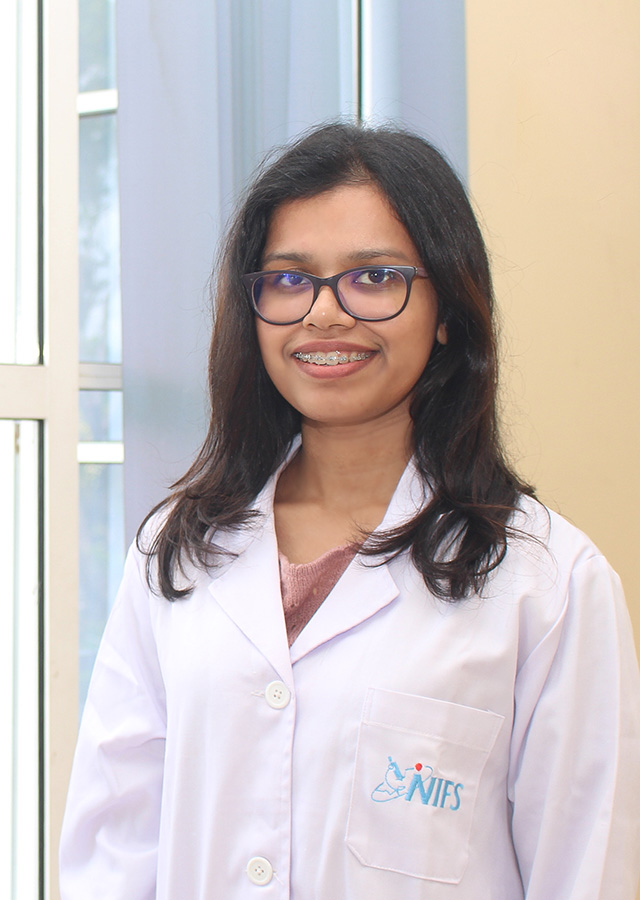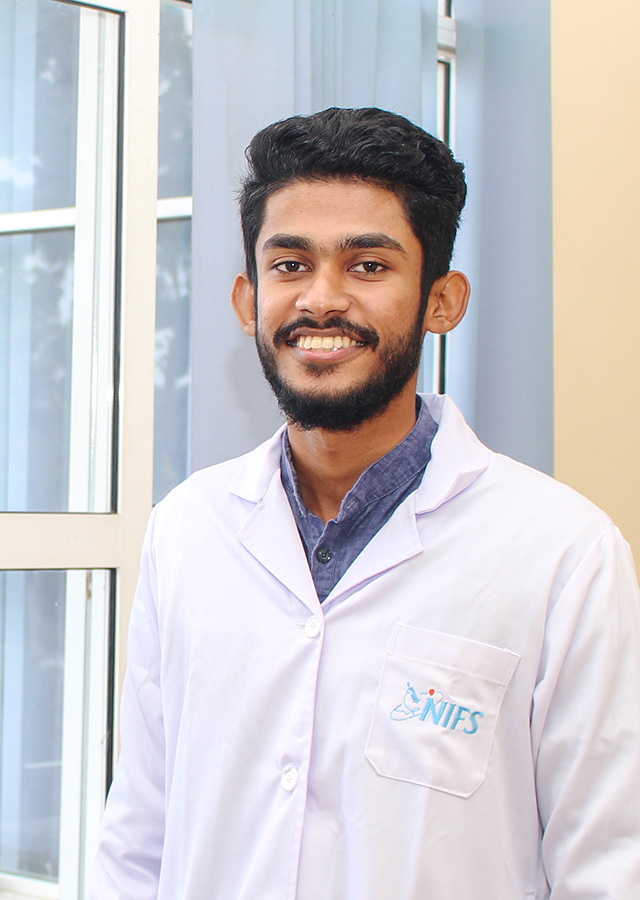Molecular Microbiology and Human Diseases Research Programme
For a disease free nation

Research Focus
Advances in Molecular Biology have opened new approaches to studying the diversity of microorganisms in the environment; air, water and soil, and the human body. We concentrate mainly on diseases, both infectious and non-communicable(NCD) diseases that affect humans globally as well as locally. The current emphasis is on pulmonary diseases, particularly drug-resistant tuberculosis (TB) and latent TB. We also pay attention to chronic kidney disease (CKD) and CKD with unknown aetiology (CKDu). In CKDu research, we investigate the presence or absence of cyanotoxins, electrolytes and fluoride in ground waters in CKDu endemic areas and the uptake mechanism of these risk factors in plants. Concentrating on the environmental microorganisms, we study the cyanobacterial diversity and the thermophilic microorganisms in hot springs of Sri Lanka, which are understudied areas. Another area of interest is air pollution, where we study indoor and outdoor microorganisms.
We employ advanced laboratory techniques, including real-time PCR, metagenomics, whole-genome sequencing, microarray, RNA sequencing, HPLC, LC-MS, XRD, ICP-MS, and bioinformatic tools. Our project takes part in many multidisciplinary research ventures of national importance, serving the best with the existing laboratory facilities.
Why does this matter ?
Microbes are an incredibly diverse group of fascinating creatures living around us. They play an essential role in our surrounding environment and the human body. Many microorganisms are beneficial and do not necessarily harm us or cause diseases. However, disrupting the balance between these extremes will adversely impact human and animal health. Therefore, it is vital to understand the microbial diversity and abundance around us to use these organisms in biotechnological applications and to prevent possible diseases caused by them. The government of Sri Lanka provides free healthcare to its citizens. CKDu is an increasing health concern in Sri Lanka, and the causative factors are still a mystery.
We study the above at the molecular level to find the root causes and develop rapid, low-cost molecular techniques for early diagnostics of human diseases.
Ongoing Projects
Genetic Characterisation of Drug-Resistant Mycobacterium tuberculosis Isolates from Sri Lankan and Pakistani Tuberculosis Patients and Identification of Associated Biomarkers
Read Morearrow_forward
Diversity and Distribution of Thermophilic Microorganisms in Hot Springs of Sri Lanka: A Metagenomics Approach
Read Morearrow_forward
Epidemiological Study on Asbestos Related Occupational Health Problems Among Asbestos Industry Workers in Sri Lanka
Read Morearrow_forward
Transcriptome Analysis of Mycobacteria in Serum Exosomes of Latent Tuberculosis Patients For Candidate Biomarker Identification
Read Morearrow_forward
Enrichment Mechanisms of CKDu-Risk Factors in Ground Waters, Their Uptake Pathways and Potential Remedies
Read Morearrow_forward
Identification of Urinary Biomarkers For CKDu and Diabetic and Hypertensive CKD in Sri Lanka
Read Morearrow_forward
Characterisation of Antibiotic Resistomes in Selected Geothermal Springs in Sri Lanka
Read Morearrow_forward
Balloon Flights Over Central Sri Lanka to Detect Possible Ingress of Cometary Microorganisms & Particulate Matter
Read Morearrow_forward





